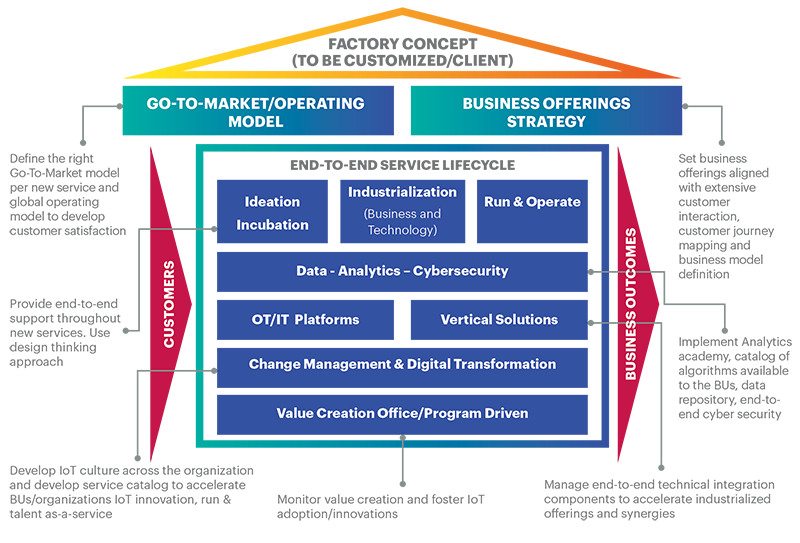Imagine a world where complex projects like building a bridge or launching a satellite require the collaboration of multiple organizations. These organizations, each with their own expertise and goals, might be rivals in other contexts, but for this specific project, they need to work together seamlessly. This is where the concept of multi-party systems comes in. And in this complex landscape, Accenture plays a crucial role as a trusted advisor and collaborator.

Image: www.slideserve.com
While the concept of multi-party systems might seem abstract, its applications are incredibly tangible. It touches nearly every aspect of our lives, from the food we eat to the energy we consume, from the healthcare we receive to the technology we use. Understanding Accenture’s role in this complex web of relationships is essential to appreciating the company’s impact on a global scale.
Accenture’s Expertise in Multi-Party Systems
Accenture’s expertise in multi-party systems stems from its deep understanding of various industries, its ability to navigate diverse organizational cultures, and its commitment to facilitating successful collaboration. They leverage this expertise to help organizations tackle complex challenges that require a multi-faceted approach. This might involve coordinating efforts across different departments within a single organization, or it might involve building bridges between organizations with often competing interests.
To effectively facilitate collaboration in multi-party systems, Accenture adopts several key strategies:
- Developing Shared Vision and Goals: Accenture helps organizations define common objectives and create a shared understanding of the project’s overall vision, ensuring everyone is working towards the same end goal.
- Establishing Effective Communication Channels: Open and transparent communication is crucial in multi-party systems. Accenture facilitates the establishment of robust communication channels to ensure information flow between all stakeholders, minimizing misunderstandings and conflicts.
- Designing Collaborative Frameworks: Accenture designs tailored frameworks and processes that encourage collaboration and provide clear responsibilities for each participating organization. This fosters a sense of shared ownership and responsibility.
- Leveraging Technology as a Catalyst: Modern technology plays a vital role in enabling seamless collaboration. Accenture utilizes a variety of platforms and tools to streamline communication, share data, and enhance project management in multi-party systems.
- Managing Risks and Conflicts: Multi-party systems inherently carry risks and potential for conflict. Accenture actively identifies potential issues, mitigates risks, and develops conflict resolution strategies to ensure project success.
Accenture’s Role in Specific Multi-Party Systems
Let’s delve deeper into how Accenture’s expertise translates into real-world impact. Here are some examples of how Accenture collaborates with clients to navigate the complexities of multi-party systems:
Healthcare
In the healthcare sector, Accenture works with pharmaceutical companies, hospitals, and government agencies to develop integrated solutions for drug development, patient care, and public health initiatives. This requires navigating complex regulations, managing sensitive patient data, and fostering collaboration between diverse stakeholders. Accenture’s expertise in these areas ensures that these initiatives are efficient, effective, and patient-centered.

Image: www.myxxgirl.com
Supply Chain Management
Accenture helps companies optimize their supply chains by collaborating with manufacturers, distributors, logistics providers, and retailers. This involves streamlining processes, improving visibility across the chain, collaborating on inventory management, and developing strategies for responding to disruptions. By simplifying complex supply chains, Accenture helps companies reduce costs, improve efficiency, and ensure customer satisfaction.
Financial Services
Accenture works with banks, insurance companies, and financial regulators to develop and implement innovative solutions that enhance financial services and protect consumers. This requires understanding intricate regulations, managing sensitive customer data, and collaborating with third-party providers. Accenture’s expertise in these areas helps financial institutions build trust, enhance security, and create more personalized customer experiences.
Energy and Utilities
In the energy and utilities sector, Accenture helps companies develop sustainable solutions and manage the transition to a more clean and efficient energy future. This involves working with energy suppliers, power grid operators, government agencies, and renewable energy companies. Accenture’s expertise in this area helps create sustainable energy solutions that meet the needs of a changing world.
Navigating the Future of Multi-Party Systems
The world is becoming increasingly interconnected, and the rise of global challenges like climate change, cybersecurity threats, and pandemics highlights the importance of collaboration. Multi-party systems will continue to be crucial for tackling complex problems and driving positive change. Accenture recognizes this trend and is actively innovating to meet the evolving needs of multi-party collaboration.
Emerging Trends
Several trends are shaping the future of multi-party systems, and Accenture is at the forefront of these developments:
- Data-Driven Collaboration: The increasing availability and sophistication of data analytics is transforming multi-party systems. By leveraging data insights, organizations can make more informed decisions, identify opportunities, and optimize their contributions to collaborative projects.
- Advanced Digital Technologies: Emerging technologies like artificial intelligence, blockchain, and the Internet of Things are revolutionizing how organizations collaborate. These technologies enable seamless data sharing, enhance operational efficiency, and foster new levels of trust between participating parties.
- Growing Focus on Sustainability: As the world prioritizes sustainable solutions, multi-party systems play a vital role in addressing global challenges like climate change. Organizations are collaborating to develop green technologies, implement sustainable practices, and work towards a more equitable and sustainable future.
Tips for Navigating Multi-Party Systems
Based on Accenture’s experience in facilitating multi-party collaboration, here are some tips for organizations involved in complex projects:
- Define clear goals and objectives: Ensure everyone involved understands the project’s purpose and the desired outcome.
- Foster open communication: Establish transparent communication channels to minimize misunderstandings and facilitate information sharing.
- Embrace a collaborative mindset: Encourage a culture of cooperation, trust, and shared accountability.
- Utilize technology to enhance collaboration: Leverage modern tools and platforms to streamline processes, improve collaboration, and optimize information flow.
- Develop a robust risk management framework: Identify potential issues, develop mitigation strategies, and be prepared to address conflicts that may arise.
By following these tips, organizations can maximize the benefits of collaboration and contribute to a successful multi-party system.
FAQs
What are some examples of multi-party systems?
Multi-party systems can be found in various sectors. Some common examples include:
- Supply chain collaboration: Manufacturers, suppliers, distributors, and retailers working together to optimize product flow and enhance efficiency.
- Healthcare collaborations: Hospitals, pharmaceutical companies, insurance providers, and government agencies working together to improve patient care and public health.
- Research and development partnerships: Universities, research institutions, and private companies collaborating to advance scientific knowledge and develop new technologies.
- Environmental conservation initiatives: Government agencies, non-profit organizations, and private companies working together to protect natural resources and promote sustainability.
What are the benefits of multi-party systems?
Multi-party systems offer several advantages:
- Access to diverse perspectives and expertise: Bringing together organizations with different backgrounds and skillsets can lead to more innovative and comprehensive solutions.
- Shared resources and reduced costs: Pooling resources can help reduce overall project costs and enhance efficiency.
- Enhanced risk management: By distributing risks across multiple parties, the overall impact of unexpected challenges can be mitigated.
- Increased innovation: Collaboration can stimulate creativity and lead to breakthroughs that might not be possible with individual efforts.
- Building strong relationships: Successful multi-party collaborations can foster trust and long-lasting partnerships.
How can organizations effectively leverage multi-party systems?
Organizations can build effective multi-party systems by:
- Clearly defining goals and objectives: Ensure everyone involved understands the project’s purpose and the desired outcome.
- Establishing clear communication protocols: Promote open and transparent communication to minimize misunderstandings and facilitate information sharing.
- Building trust and collaboration: Encourage a culture of cooperation, shared accountability, and respect for all participating organizations.
- Leveraging technology: Utilize modern tools and platforms to streamline processes, enhance collaboration, and optimize information flow.
- Developing a robust risk management framework: Identify potential issues, develop mitigation strategies, and be prepared to address conflicts that may arise.
What Is Accenture’S Role In Multi-Party Systems
Conclusion
Accenture plays a crucial role in enabling successful multi-party collaborations. By leveraging its deep industry expertise, commitment to transparency and collaboration, and innovative approach to leveraging technology, Accenture helps organizations navigate the complexities of multi-party systems and achieve shared goals. As the world becomes increasingly interconnected, multi-party systems will become even more critical for addressing complex challenges and driving positive change. Are you interested in learning more about Accenture’s role in this evolving landscape?






